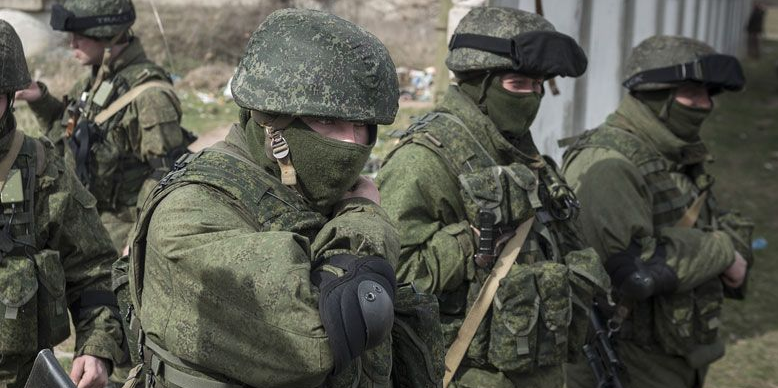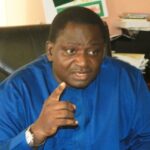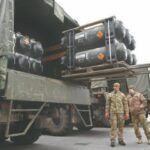
Russian President, Vladimir Putin, is set to speak with his US and French counterparts on Saturday after the United States warned that Moscow could invade Ukraine in days.
The United States had dramatically raised the alarm over Ukraine on Friday, saying a Russian invasion starting with civilians caught under aerial bombing could begin in days and telling US citizens to leave within 48 hours.
In a diplomatic flurry to head off a possible invasion, Putin will speak with Joe Biden and Emmanuel Macron on Saturday.
US Secretary of State, Antony Blinken, said he would also speak to Russian counterpart, Sergei Lavrov, the same day, terming this “a pivotal moment” in the crisis, and that his government was “prepared for whatever should happen”.
“We continue to see very troubling signs of Russian escalation, including new forces arriving around Ukraine’s borders,” Blinken said at a press conference in Fiji.
“If Russia is genuinely interested in resolving this crisis of its own making through diplomacy and dialogue, we’re prepared to do that,” he said.
The White House had earlier warned of an attack by the more than 100, 000 Russian troops currently massed next to Ukraine, even while the Beijing Olympics were still underway.
Blinken added that dialogue would only be possible if accompanied by “de-escalation”.
“So far, we’ve only seen escalation from Moscow,” he said, adding that Russia had yet to respond to “some of the ideas” floated by Washington. “I’ll be asking Mr Lavrov if we can anticipate a response in the coming days, to see if we can carry the dialogue forward.”
Blinken declined to confirm whether the United States would be evacuating its embassy staff from Kyiv: “We’ll have more to say about that in the coming hours,” he said.
On Friday, White House National Security Advisor, Jake Sullivan, called on Americans to immediately leave Ukraine, warning a Russian attack “is likely to begin with aerial bombing and missile attacks that could obviously kill civilians.”
While stressing that it was not yet known whether Putin had taken a decision, saying “we can’t predict the exact determination”, Sullivan made clear the United States was bracing for the worst, including a “rapid assault” on the capital, Kyiv.
Sullivan spoke shortly after President Joe Biden and six European leaders; the heads of NATO, and the European Union, held talks on the worst crisis between the West and Russia since the end of the Cold War.
A US official said Biden would speak with Putin on Saturday, while Paris said Macron would also be calling the Russian leader on Saturday.
Underlining the bleak outlook, a string of countries joined the exodus of diplomats and citizens from Ukraine, while oil prices surged and US equities tumbled.
— Western, NATO unity —
Sullivan repeated warnings that Russia risked severe Western sanctions, and said that NATO, which Putin wanted to push back from Eastern Europe, was now “more cohesive, more purposeful, more dynamic than any time in recent memory.”
The Pentagon announced it was sending 3, 000 more troops to bolster ally Poland.
Following the earlier group phone call between the US and European leaders, German Chancellor Olaf Scholz’s spokesman said, “The aim is to prevent a war in Europe, but if Moscow fails to pull back, the allies are determined to jointly take swift and deep sanctions against Russia.”
These sanctions would target the financial and energy sectors, EU chief Ursula von der Leyen said.
Sullivan spoke to der Leyen’s Chief of Staff, Bjoern Seibert, by video call on Friday, to coordinate “the details of a potential transatlantic response, including both financial sanctions and export controls,” according to a White House statement.
— Russia surrounding Ukraine —
Russian naval forces and troops, including units brought in from all over the vast country, now surround Ukraine to the South, East and North.
Russia, which denies any plan to attack Ukraine, already controls the Crimea territory seized in 2014, and supports separatist forces controlling Ukraine’s Donbas region in the East.
The Kremlin says its goal is to get NATO to agree to never give Ukraine membership, and also to withdraw from Eastern European countries already in the alliance, effectively carving Europe into Cold War-style spheres of influence.
The United States and its European allies reject the demands, insisting that NATO poses no threat to Russia.
Adding to tensions, large-scale Russian military drills were underway Friday with authoritarian ally Belarus, which lies just North of Kyiv and also borders the European Union.
Russia’s defence ministry said on Friday it was also holding military exercises near Ukraine’s border in the Black Sea.
According to the head of Norway’s military intelligence service, Russia is operationally ready to conduct a wide range of military operations in Ukraine, and the Kremlin just needs to make the call.
Top US General, Mark Milley, and his Russian counterpart, Valery Gerasimov, talked on Friday by phone, the Pentagon said, giving no details of the discussion.
AFP





